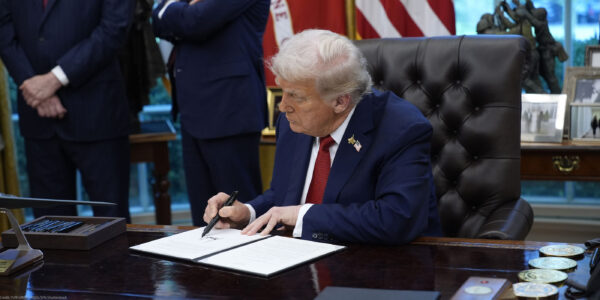The latest Patriot Act news brings a good sampling of stories worth looking at (good for a wet and dreary August day in sleepy, Congressional recess-ridden Washington).
FoxNews.com has an online addendum to a recent broadcast. David Keene, president of the American Conservative Union, questions the wisdom of the sneak and peek statute as it currently stands. Here's Keene: "We want them to be able to accomplish their objective. We don't want law enforcement officials to be able to run roughshod, investigating for whatever they want with whatever rules they set."
The Minnesota Lawyer (password req'd) covers the attorney general's fascinating talk at the American Bar Association House of Delegates meeting in Chicago last week. Gonzales pulled an interesting segue, linking the Voting Rights Act of 1965, parts of which are up for reauthorization soon, and the Patriot Act.
Despite this huh?-type analogy, the message was same old, same old. "He said that he is interested in preserving privacy rights and civil liberties," the ML reports, "but does not favor 'unilaterally disarming' the government by votes in Congress that would not reauthorize portions of the act." Nor does any advocate of enhancing the checks on government abuse in the Patriot Act. Thankfully, the Senate version of Patriot Act reauthorization rejected the House approach, i.e. reauthorize and expand the law without any real reform at all. It takes some needed steps in the right direction, but steps that do nothing to "disarm" federal agents.
Here's a keeper from across the pond: the Times of London has Keene, Roger Pilon from Cato and even James Carafano from the Heritage Foundation commenting on anti-terrorism measures backed by Prime Minister Blair, which would criminalize speech in certain contexts. Pilon says: "The further you go down this route, the more you depend on 'good men and women' to enforce the law because legislation can be crafted with only limited precision."
The Times reports, however, that the problem parts of the Patriot Act "pale in comparison" to the Blair legislation. Not quite true. Despite assurances to the contrary, the expansion of records searches in Section 215, the codification of sneak and peek power in Section 213 and the expansion of "national security letter" authority in Section 505 are all dramatic changes to our criminal and intelligence laws.
The principles guiding Britain's civil libertarians, and the conservatives that agree with them over here, are doubly important in the United States. We broke our ties with the British crown partly in pursuit of the fundamental ideal that the government has to let us alone unless it has a really good reason to do otherwise. Nuff said.


